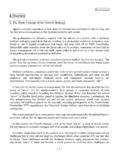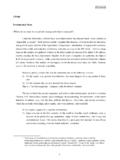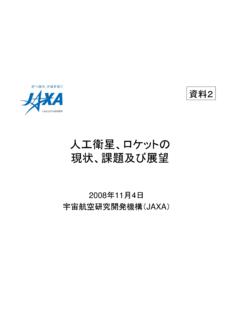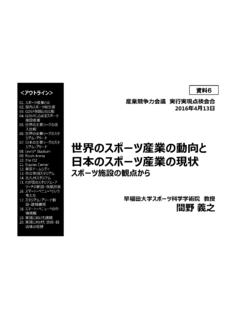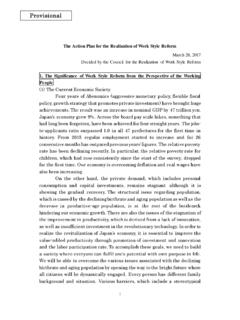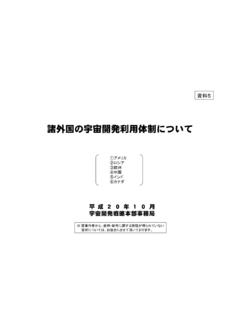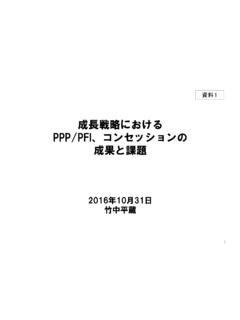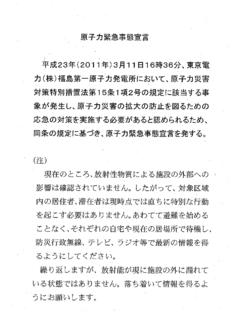Transcription of Report of the Advisory Panel on the History of ... - Kantei
1 Translation Report of the Advisory Panel on the History of the 20th Century and on Japan s Role and the World Order in the 21st Century August 6, 2015 The Advisory Panel on the History of the 20th Century and on Japan s Role and World Order in the 21st Century Contents Advisory Panel Members and Schedule of Meetings Introduction 1. How should we view the History of the world and Japan in the 20th Century? What are the lessons we should learn from the experiences of the 20th Century?
2 (1) The History of the World and Japan in the 20th (a) From Imperialism to International (b) From the Great Depression to World War (c) After World War (d) The Development of International Law in the 20th (2) Lessons to Be Learned from the 20th 2. What is the path that Japan has taken in the 70 post-war years in light of the lessons learned from the 20th century? In particular, how should the commitment to peace, economic development and international contributions by post-war Japan be evaluated?
3 (1) The History of Japan in the 70 Post-War (a) From Defeat in War to High Economic (b) Japan as an Economic (c) The Economic Doldrums and the Search for an International (d) Japan s Progress in the Field of (2) Evaluation of the Commitment to Peace, Economic Development, and International Contributions of Post-War 3. How did Japan pursue r econciliation with the United States, Australia, and European countries in the 70 years after the war? (1) 70 Years of Reconciliation with the United (a) The Occupation (b) Deepening the (c) Tensions in the (d) The Evolution of the Alliance towards a Relationship for Global (2) 70 Years of Reconciliation with Australia and (a) Deeply Rooted Anti-Japanese (b) The Government and the Private Individuals Working Together for Reconciliation.
4 19 (3) Evaluation of the 70 Years of Reconciliation with the United States, Australia, and Europe ..20 4. How did Japan pursue reconciliation with China, the Republic of Korea and other Asian countries in the 70 years after the war? (1) 70 Years of Reconciliation with (a) From the End of the War to Normalization of Diplomatic (b) From Normalization of Diplomatic Relations to the (c) Evaluation of the 70 Years of Reconciliation with (2) 70 Years of Reconciliation with the Republic of (a) From the End of the War to Normalization of Diplomatic (b) From Normalization of Diplomatic Relations to the (c) Evaluation of the 70 Years of Reconciliation with the Republic of (3)
5 70 Years of Reconciliation with Southeast (a) 70 Years of Reconciliation with Southeast (b) Evaluation of the 70 Years of Reconciliation with Southeast 5. What is our vision of Asia and the world of the 21st Century, drawing on the lessons learned from the 20th century? What are the contributions that Japan should make? (1) The Two Universalizations that the World Experienced in the 20th (2) The New Trends in the 21st (3) What should Japan do for the prosperity of the world and Asia?
6 36 6. What are the specific measures that Japan should take on the occasion of the 70th anniversary of the end of World War II? Members of the Advisory Panel on the History of the 20th Century and on Japan s Role and World Order in the 21st Century Taizo NISHIMURO #Chairman President and CEO, Japan Post Holdings Co., Ltd. Chairman, The Japan Institute of International Affairs (JIIA) Shinichi KITAOKA #Deputy Chairman President, International University of Japan (IUJ)
7 Keiko IIZUKA Editor, International News Department, Editorial Bureau The Yomiuri Shimbun Yukio OKAMOTO Senior Fellow, MIT Center for International Studies Shin KAWASHIMA Professor, Graduate School of Arts and Sciences The University of Tokyo Yorihiko KOJIMA Chairman of the Board, Mitsubishi Corporation Yoshiko KOJO Professor, Graduate School of Arts and Sciences, The University of Tokyo Takashi SHIRAISHI President, National Graduate Institute for Policy Studies (GRIPS) Rumiko SEYA President, Japan Center for Conflict Prevention (JCCP) Director, JCCP M Co.
8 , Ltd Terumasa NAKANISHI Professor Emeritus, Kyoto University Masashi NISHIHARA President, The Research Institute for Peace and Security Masashi HANEDA Professor, The University of Tokyo Yoshito HORI President, GLOBIS University Managing Partner, GLOBIS Capital Partners Kunihiko MIYAKE Visiting Professor, Ritsumeikan University Research Director, The Canon Institute for Global Studies Masayuki YAMAUCHI Professor Emeritus, The University of Tokyo Professor, Meiji University Takao YAMADA Columnist for the Mainichi Newspapers Dates of Sessions, Themes of Discussion, Presenters The first session February 25, 2015 The second session March 13, 2015 Theme: How should we view the History of the world and Japan in the 20th century?
9 What are the lessons we should learn from the experiences of the 20th century? Presenter: Shinichi KITAOKA Deputy Chairman of the Advisory Panel Naoya OKUWAKI Professor, Graduate School of Law, Meiji University; Professor Emeritus, The University of Tokyo; Former President, Japanese Society of International Law The third session April 2, 2015 Theme: What is the path that Japan has taken in the 70 post-war years in light of the lessons learned from the 20th century?
10 In particular, how should the commitment to peace, economic development and international contributions by post-war Japan be evaluated? Presenter: Akihiko TANAKA President, Japan International Cooperation Agency(JICA) Yukio OKAMOTO Advisory Panel Member The fourth session April 22, 2015 Theme: How did Japan pursue reconciliation with the United States, Australia, and European countries in the 70 years after the war? Presenter: Fumiaki KUBO Professor, The University of Tokyo Yuichi HOSOYA Professor, Keio University The fifth session May 22, 2015 Theme: How did Japan pursue reconciliation with China, the Republic of Korea and other Asian countries in the 70 years after the war?
